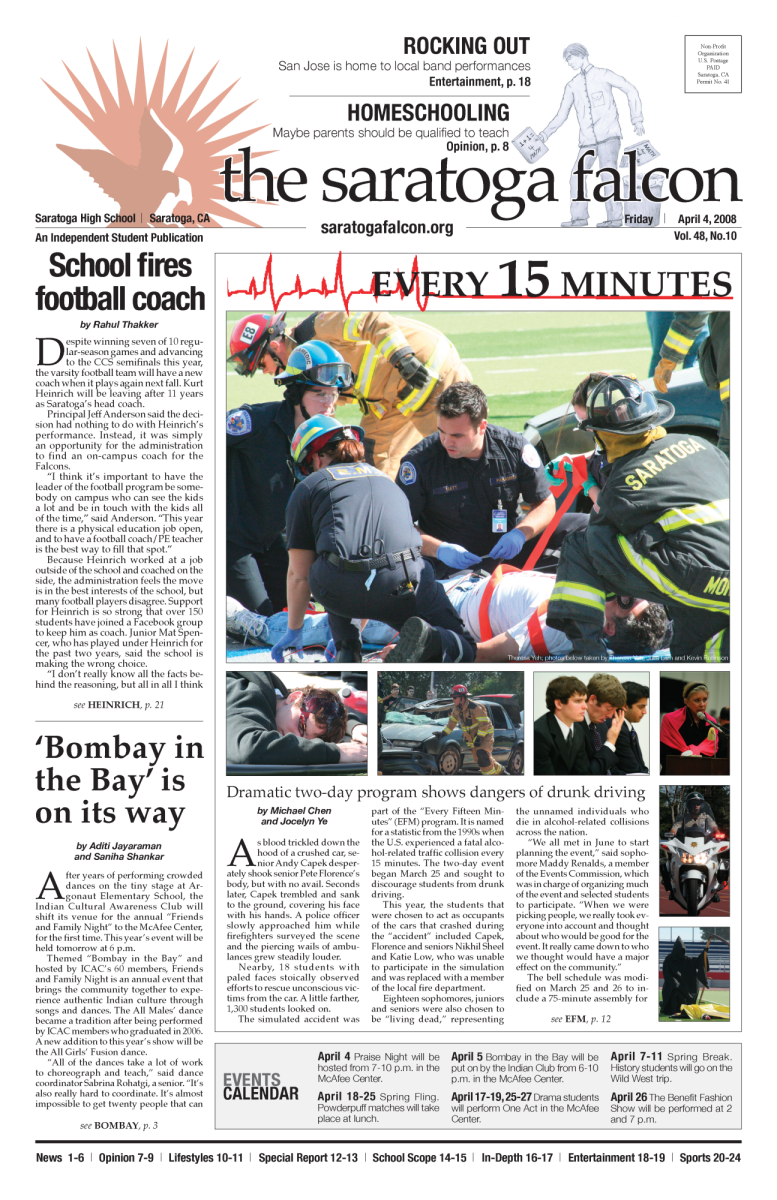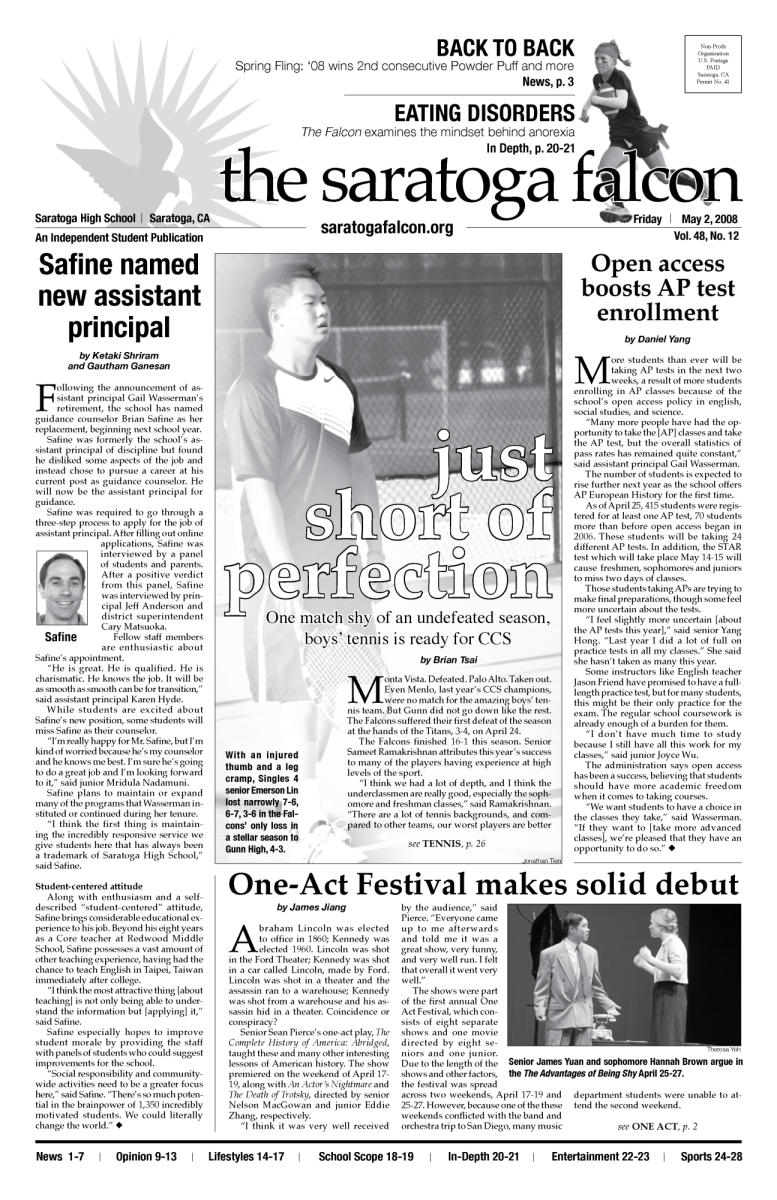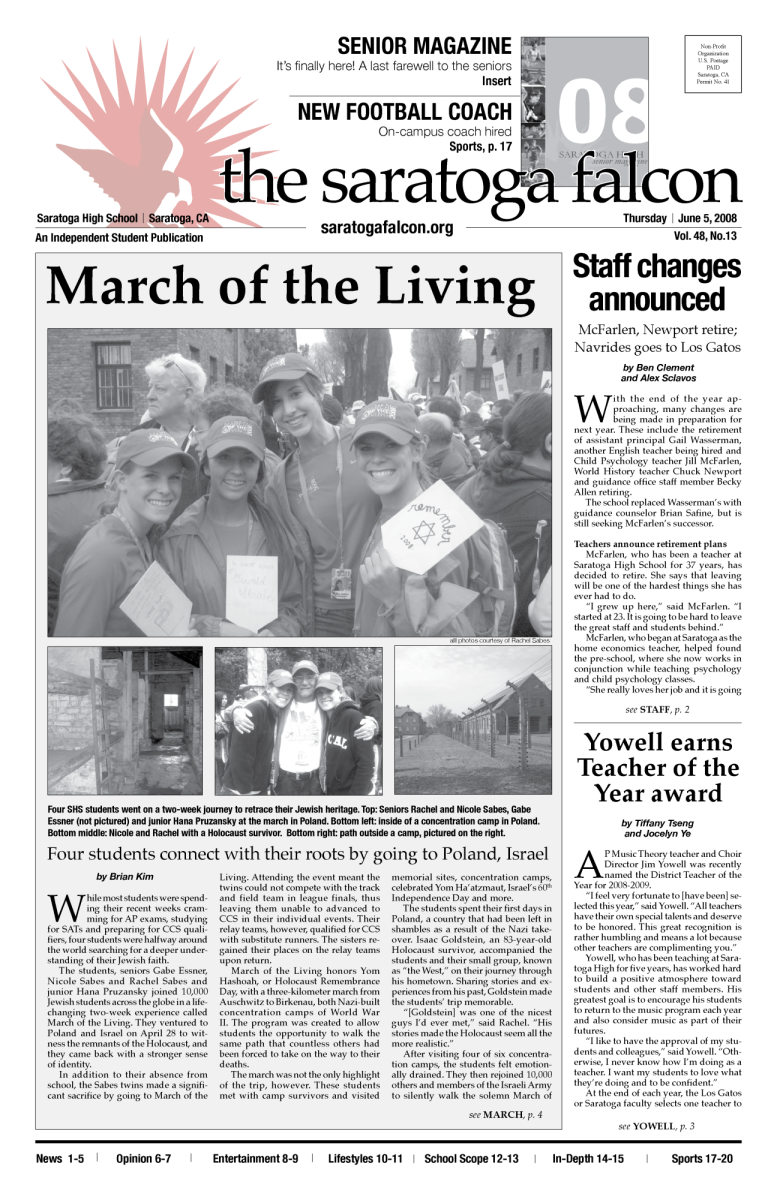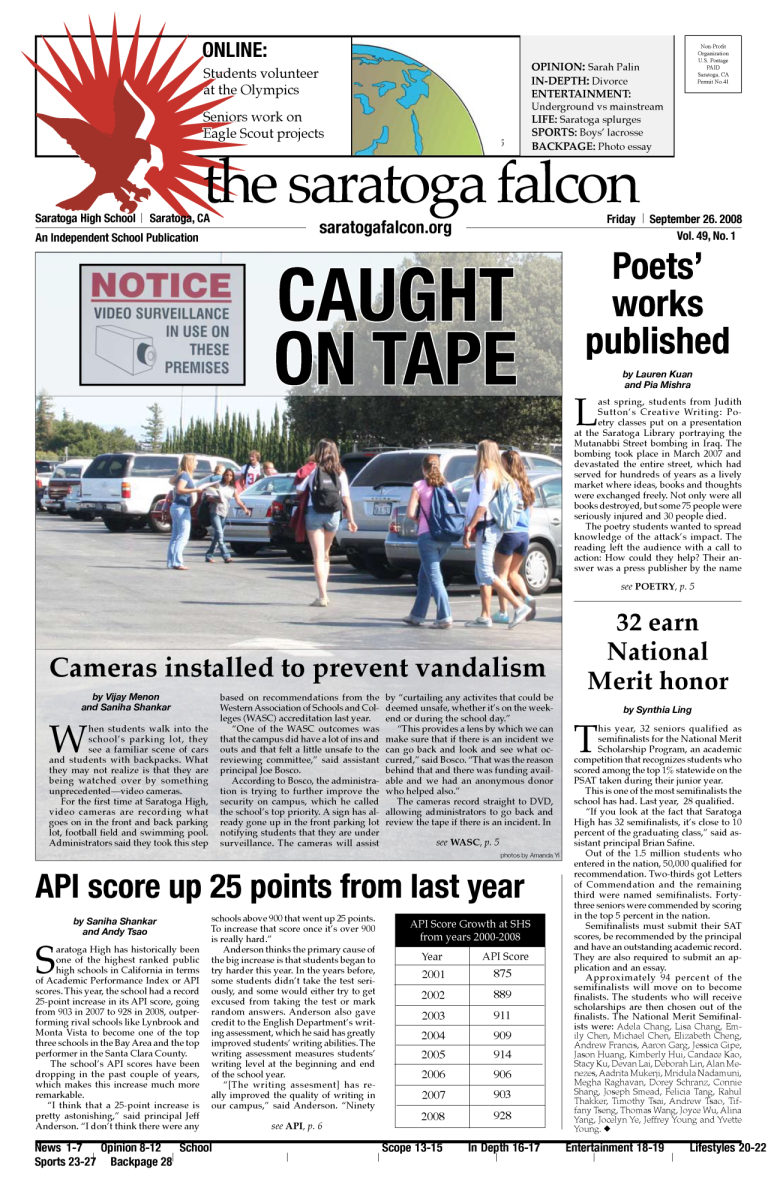Principal Jeff Anderson is an investment banker—but of a different sort from the ones who deal in stocks and bonds. Anderson’s decisions regarding which teachers to hire and when, if at all, to give tenure to existing teachers have lasting effects on current students and students who will have to learn from these teachers long after Anderson leaves his post.
“A teacher I choose today will be there for years after I am gone, when there will be a new principal and new students,” said Anderson. “That’s a big deal.”
So like any good investment banker, Anderson considers multiple factors when making his investments. The first step is to put an ad in an online service know as EdJoin, an educational want ads service.
The district used EdJoin recently to help find two two assistant principals at Los Gatos High School. Prospective applicants uploaded their resumes onto the website where district officials review them. Of the 110 resumes submitted, 10 were chosen to be interviewed by an administrative panel. Four were “screened” after the interviews to meet with the superintendent of the district, Cary Matsuoka, and the director of human resources Bob Mistele.
But the interview process alone is not always sufficient to gauge a how well a teacher performs in the
classroom.
“The interview can be tricky. Some people come across really bad in the interview, but they actually might be a good teacher. Some people come across great in interviews, but once you get them in the classroom they might be terrible,” said Anderson. “I usually have a good idea of how the teacher is after the interview, though.”
Anderson’s impression of the teacher is noted in a recommendation to the superintendent who, along with the school board, makes the final decision. After the teacher is hired, they are often assigned a probationary status (unless they are hired on a temporary basis). This means they can be let go without cause until they receive tenure. During this probationary period, the teachers are observed three times annually.
In the observations, a pre-meeting is held to discuss the lesson plan for the observation and Anderson evaluates them in all facets of their teaching.
These three observations play a crucial role in determining whether or not the teacher is a good fit for Saratoga High. Oftentimes, teachers make minor mistakes, but rarely do they do anything during these observation periods that cannot be fixed, Anderson said.
“If they do something that I don’t really like, we would talk and figure out how to solve the problem,” said Anderson.
After this initial year of probationary status, teachers undergo another year of probationary status. Usually referred to as “probationary 2,” this period allows for even greater scrutiny of the teacher’s teaching style and also factors in to whether the teacher gets tenure or not. Teachers are notified of whether they have been granted an elevated status on March 15 of that year. If the probationary 2 goes without problems, then the teacher is tenured.
But if Anderson feels something is not working, the teacher may not get tenure and will leave the school.
While Anderson wishes for more time, he says the year and a half he is given to determine whether tenure is merited is usually telling of the teacher’s ability.
“The short period is the tradeoff between dismissal without cause and complying with teachers’ union policies,” said Anderson.
Not all teachers, however, are granted tenure immediately after the probationary 2.
“Honestly, most people I’m fine with: I know they’ll be superb. But others could use some extra time,” Anderson said.
This is for good reason. Tenured teachers are allowed far more privileges, especially greater job security, than non-tenured teachers, which is why Anderson often defers to his gut when making the decision. Teachers often are tenured for 30 years or more, which is usually tantamount to the rest of their careers. Anderson said it’s hard to release tenured teachers unless they’ve committed an egregious error—such as theft or inappropriate relations with students.
Tenured teachers are formally observed less frequently—on average once every three years. “The majority of the teachers are tenured. Seeing as how we have 70 teachers, a third of them are evaluated each year,” said Anderson.
Because of these high stakes, Anderson tries to filter the teachers who may not be a good fit for Saratoga High at the very beginning of the hiring process.
“I look at how a teacher packages it together—how into teaching they are, how much support they give to students. All that is what makes a good teacher, not what college they went to or how many degrees they have,” Anderson said.
Given Saratoga’s reputation and the generally good quality of students, finding such teachers isn’t too difficult. In addition to Saratoga’s superior pay rates compared to most schools in the state, Anderson noted, “The atmosphere is great. You have students who are attentive, do their homework and actually want to learn.”
This is perhaps why, Anderson said proudly, “This is the best teaching staff by far that I’ve ever seen.”



























